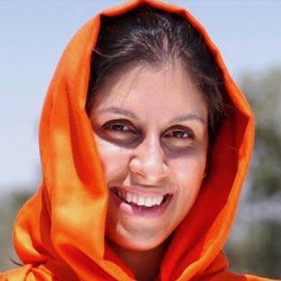News
Nazanin 'offered freedom if she spied for Iran'
Monday 14 January 2019

Thomson Reuters Foundation worker Nazanin Zaghari-Ratcliffe (photo) started a hunger strike in a Tehran prison on Monday and it was disclosed interrogators tried to persuade her to spy for Iran.
Her husband Richard Ratcliffe said she was calm as she began an initial three-day hunger strike in protest at the prison authorities’ refusal to give her a clear written undertaking she would receive medical help for a lump on her breast, and other health concerns.
Zaghari-Ratcliffe, 40, was jailed for five years in 2016 after being convicted of spying, which she denies.
Richard Ratcliffe spoke as British foreign secretary Jeremy Hunt summoned the Iranian ambassador in London to demand she be given proper medical help.
A foreign office spokeswoman said: “The foreign secretary will call for Nazanin to be immediately given the healthcare she requires and for her and other innocent British Iranian dual nationals to be released. The foreign secretary has made this decision due to the deeply concerning deterioration in Nazanin’s health and the lack of progress in her case and other cases.
“The treatment of all British-Iranians detained in Iran, including Mrs Zaghari-Ratcliffe, is a priority for the government. We have repeatedly lobbied the Iranians to release Nazanin on humanitarian grounds and we will continue to raise all our cases at every level and every opportunity.”
Ratcliffe said it was “now or never” for Hunt to escalate the matter by saying the British government would give his wife diplomatic protection, a means by which it would be elevated to a state-by-state dispute, making a legal international claim for her to be visited by British authorities in prison more likely to be granted.
Ratcliffe praised Hunt’s tougher rhetoric but said it was time for more action, pointing out the request to give diplomatic protection had been made more than a year ago.
He said the decision to disclose pressure on his wife from Iran’s Revolutionary Guards to spy via a job with British Aid was difficult. But he said he had been appalled by the associated warning that if she did not agree there would be consequences for her family still in Iran.
“She was told it would be safer for her and safer for her family afterwards if she agreed to do this,” he said. He added: “She was told to think about it and that they would return. She had been terrified ever since.”
Ratcliffe said he had written to Iranian foreign minister Javad Zarif to protest against the threat, and had informed the British foreign office. He also released an account of the demands that she should spy for Iran, adding everything in Iran was filmed, and if she had agreed, it would have been used against her. It was the first time the Revolutionary Guards had visited her for more than a year.
Zaghari-Ratcliffe refused the offer outright, he said, insisting she did not wish to spy for either the UK or Iran.
He said the request to become an Iranian agent was made on 29 December at the same time as the Iranians offered a short-term release in January. Ratcliffe said a previous release turned out to be part of a power game in which Iran bartered her case for a favourable court outcome in a long-running dispute over money owed to Iran by the UK for the sale of arms to Iran more than three decades ago.
Ratcliffe said his wife had been used as a clear bargaining chip in two previous hearings on this case.
Monique Villa, Thomson Reuters Foundation chief executive, said denying her employee medical access was a form of torture.
“This is a kind of very slow torture,” she told the press conference. She also said Zaghari-Ratcliffe had suffered “severe depression” in custody and reiterated she was not guilty of espionage.
“She’s not spy material,” Villa said. “She’s innocent. She should be released immediately and she should have immediate medical access.” ■
- SOURCE
- The Guardian
- « Previous
- Next »
- 462 of 2177